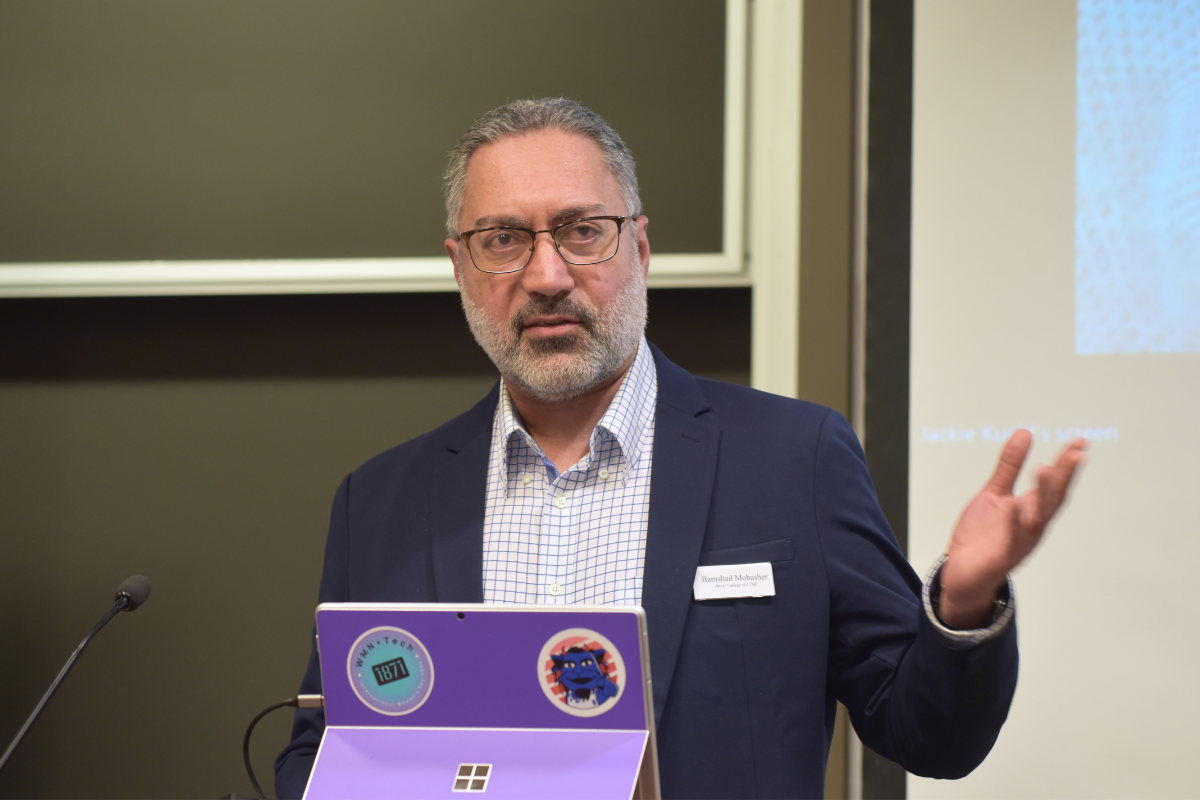 (Photo courtesy of Bamshad Mobasher)
(Photo courtesy of Bamshad Mobasher)An estimated
47,000 migrants have
come through Chicago since 2022, many of whom arrive without proper processing. They are often transported here from various locations without adequate resources or support. While the city, state and nonprofit organizations offer some
assistance, the process
remains challenging.
"Seeing everything going on, I had this idea: Why not leverage artificial intelligence to create a platform that supports migrants?" says
Bamshad Mobasher, professor in the School of Computing and director of DePaul's new AI Institute.
Mobasher and collaborators
Roselyne Tchoua,
Jill Nyhof Rodriguez,
Lamont Black and
LeAnne Wagner have received a planning grant of $299,022 from the National Science Foundation to develop AI tools that will responsibly and ethically match migrants with the services they need. This interdisciplinary team will bring together human-centered design, computer science technology and connection with the community to develop the new technology.
Migrants encounter numerous administrative hurdles as they fill out forms and apply for services, which can be overwhelming for both them and the service providers. This is where AI could be invaluable.
"We could use AI for multilingual translation and facilitate conversations in migrants' native languages to gather necessary information for completing applications automatically," Mobasher says.
By extracting data from these conversations in a multilingual context, the team can develop machine learning models that predict the specific needs of different migrant groups or families seeking resources. This would enable personalized recommendations tailored to their unique situations, whether related to healthcare, financial support, housing or educational services.
"We have seen through our community-based assessment how pressing the need is for consistent staffing and language services," says Nyhof Rodriguez, manager of the DePaul Migration Collaborative. "If we could create an AI tool that could alleviate both staffing and language needs and allow community organizations to assist more clients with their existing resources, it would be an enormous help."
The team will also work closely with the
DePaul Migration Collaborative to connect with migrant communities and organizations. Effective coordination across community sectors is essential for bringing this vision to life. As part of the NSF proposal, the team aims not only to develop the platform, but also to create a design framework that involves the community in the system's development. This includes forming a community board with representatives from migrant organizations, service providers and other stakeholders.
The community board will play a crucial role in evaluating different aspects of the system, ensuring it fosters trust and minimizes biases — common concerns in AI-driven algorithms. To alleviate these concerns, the team will also work with community groups to establish an advisory committee to assure the technology remains ethical and transparent.
"It's exciting to see funding that focuses on the development of new technologies, but also prioritizes the creation of new interdisciplinary methods to ensure the technology is human-centered and equitable," says Wagner, director of the SPARK Center.
The project begins this year, and the planning phase will last until September 2026. A prototype will be completed at the end of the planning phase. If successful, the team plans to apply for a larger grant to conduct wide-scale testing of the technology.
Read more about NSF
here.